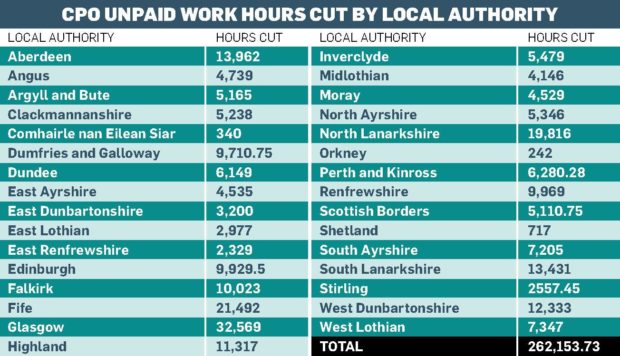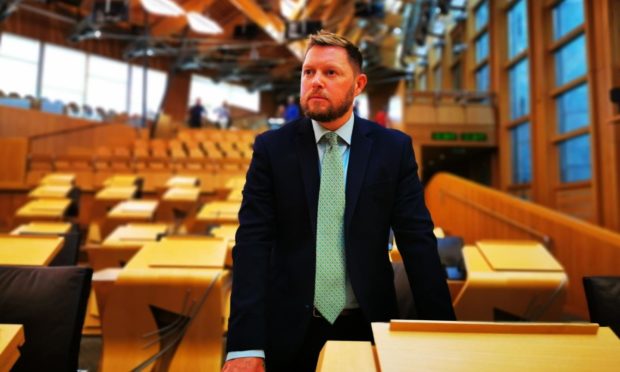The Scottish Government has been accused of letting criminals away lightly by writing off more than 260,000 hours of unpaid community work.
The figures have been revealed by the Conservatives following Freedom of Information (FOI) requests to all local authorities.
The Scottish Government announced in January that it would write off a huge number of hours handed out in Community Payback Orders.
The action was taken amid concerns the system would become “completely overwhelmed” as a result of pandemic restrictions, such as being unable to transport people on a minibus.
Under the orders, criminals are ordered to complete unpaid work, such as picking up litter and erasing graffiti.

The data shows that 21,492 hours were cut in Fife, and almost 14,000 in both Aberdeen and Aberdeenshire.
Only Glasgow had more lost hours than Fife, at 32,569, while the cut in North Lanarkshire was 19,816.
The figure for Angus was 4,739 hours, Argyll and Bute lost 5,165, in Dundee it was down by 6,149, in Highland it was 11,317, Moray had a cut of 4,529, Perth and Kinross lost 6,280, in Shetland it was 717, while in Orkney it was reduced by 242.
‘Absolutely staggering’
Scottish Conservative justice spokesman Jamie Greene said: “The sheer number of Community Payback hours cut by the SNP government is absolutely staggering.
“They’ve let criminals away lightly by writing off hundreds of hours of community sentences.
“This is a slap in the face to victims of crime right across Scotland.
This is a slap in the face to victims of crime right across Scotland.”
“When the courts order a criminal to help rebuild the community they have damaged, it’s only right that those sentences are taken seriously and fulfilled.
A Scottish Government spokesman said: “The justice system holds those who commit offences to account and community-based sentences have helped contribute to record low reconviction rates in recent years.
“The pandemic has been an unprecedented public health challenge. This was recognised by parliament when last year it approved legislation to allow community orders to be varied where necessary, as well as regulations earlier this year to reduce unpaid work hours.
“This is to address the unavoidable build-up of unpaid work resulting from essential public health restrictions and the rationale for the regulations was clearly set out at the time. Orders imposed for domestic abuse, sexual offending, and stalking were excluded.
“Our justice system has continued to operate effectively despite the challenges of the pandemic and those on community orders will still serve the majority of their sentences.”
